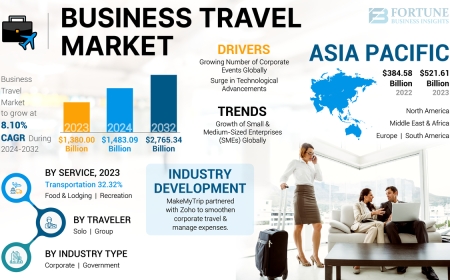Top 10 Tips for Building a Personal Brand
Introduction In today’s hyper-connected digital world, your personal brand is no longer optional—it’s essential. Whether you’re an entrepreneur, freelancer, consultant, or professional aiming to rise in your field, how others perceive you directly impacts your opportunities, relationships, and influence. But in a landscape saturated with curated profiles, viral content, and performative authentici
Introduction
In todays hyper-connected digital world, your personal brand is no longer optionalits essential. Whether youre an entrepreneur, freelancer, consultant, or professional aiming to rise in your field, how others perceive you directly impacts your opportunities, relationships, and influence. But in a landscape saturated with curated profiles, viral content, and performative authenticity, building a personal brand that people genuinely trust is harder than ever.
Trust is the currency of influence. Its what turns casual followers into loyal advocates, strangers into clients, and voices into authorities. A personal brand built on trust doesnt rely on flashy logos or viral trends. Its built slowly, deliberately, and authenticallythrough consistency, integrity, and value delivered over time.
This article dives deep into the 10 most powerful, actionable tips for building a personal brand you can trust. These arent shortcuts or hacks. Theyre foundational principles used by the most respected individuals across industriesfrom thought leaders and authors to innovators and educators. Each tip is backed by real-world behavior, psychological research, and observable patterns of long-term credibility.
By the end of this guide, youll have a clear roadmap to transform your personal brand from a digital profile into a trusted assetone that attracts opportunity, commands respect, and endures beyond trends.
Why Trust Matters
Trust is the invisible force that drives human behavior in the digital age. When you browse LinkedIn, scroll through Instagram, or read a blog post, youre not just consuming contentyoure subconsciously evaluating whether the person behind it is credible, reliable, and worth your attention. Trust determines whether you click follow, invest time in their content, or ultimately, choose them as a collaborator, client, or mentor.
Research from Edelmans Trust Barometer consistently shows that 81% of consumers say they must trust a brand before making a purchase. This applies equally to personal brands. People dont buy services because theyre the cheapestthey buy because they believe in the person offering them. A study by Harvard Business Review found that professionals with high-trust personal brands are 3.5 times more likely to be recommended and 2.7 times more likely to receive unsolicited opportunities.
But trust isnt built through testimonials or hashtags. Its built through predictability, transparency, and vulnerability. When someone consistently shows up with integrityadmitting mistakes, honoring commitments, and delivering value without expectationthey create a psychological safety net for their audience. That safety net is what turns followers into loyal supporters.
Conversely, a personal brand built on exaggeration, inconsistency, or performative authenticity collapses under scrutiny. One misstep, one misleading claim, one broken promise can erode years of effort. Thats why trust isnt just desirableits non-negotiable for sustainable influence.
Building a trustworthy personal brand isnt about being perfect. Its about being real. Its about showing up as the same person in public and private, in success and failure, in silence and in speech. The most trusted personal brands arent the loudesttheyre the most reliable.
In the next section, well break down the 10 core strategies that form the foundation of a personal brand rooted in trust. These are not theoretical ideas. They are observable behaviors practiced by individuals who have cultivated long-term credibility in crowded markets.
Top 10 Tips for Building a Personal Brand You Can Trust
1. Define Your Core Values and Live By Them Relentlessly
Your personal brand must be anchored in a clear set of core values. These are the non-negotiable beliefs that guide your decisions, communications, and actions. Common values include integrity, humility, curiosity, generosity, or resilience. But what matters isnt the labelits the consistency with which you embody them.
For example, if honesty is one of your core values, you must refuse to exaggerate results, avoid misleading headlines, and admit when you dont know something. If service is central, you prioritize helping others over self-promotioneven when its inconvenient.
People notice when your actions align with your stated values. They also notice when they dont. A single inconsistencylike promoting work-life balance while posting 3 a.m. hustle contentcan trigger cognitive dissonance in your audience, leading to distrust.
Start by writing down three to five values that define who you are at your best. Then audit your content, social media posts, emails, and public statements for alignment. Remove anything that contradicts those values, even if it performs well. Trust is built on integrity, not engagement metrics.
2. Be Consistent in Voice, Tone, and Delivery
Consistency is the silent architect of trust. When your audience knows what to expect from youwhether its your tone, your message structure, or your frequencythey feel safe engaging with you. Inconsistency, on the other hand, creates confusion and suspicion.
Consider this: if you post deeply analytical, data-driven content on LinkedIn one week and then post flippant memes and viral challenges on Instagram the next without context, your audience will question your authenticity. Are you a serious professional or a content chaser?
Define your brand voice: Are you calm and thoughtful? Bold and direct? Warm and conversational? Once defined, maintain it across platforms. Adjust the format for the channellong-form essays on Medium, short insights on Twitterbut keep the underlying tone consistent.
Also, be consistent in your output. You dont need to post daily, but you should post regularly. Whether its once a week or twice a month, show up predictably. This signals reliability. Your audience begins to anticipate your perspective, and anticipation breeds loyalty.
Consistency doesnt mean monotony. It means clarity of identity. When people know who you are and what you stand for, they trust you more deeply.
3. Share Your Struggles, Not Just Your Successes
Perfect personas are unrelatable. People dont trust someone who appears to have it all figured out. They trust someone whos been through the fire and still shows up.
Sharing your strugglesfailed projects, rejected pitches, moments of self-doubt, or career setbackshumanizes your brand. It signals vulnerability, which is the cornerstone of emotional connection. Research from the University of Texas shows that vulnerability in communication increases perceived authenticity by 68%.
Dont share struggles for sympathy. Share them for insight. Frame them as lessons. Instead of saying, I lost $50K on a bad investment, say, I lost $50K on a bad investmentand heres what I learned about due diligence that changed how I evaluate opportunities forever.
When you do this, you transform your failures into value. You give your audience permission to be imperfect too. And thats powerful. People dont follow flawless iconsthey follow resilient humans.
Start by identifying one recent struggle youve overcome. Write about it honestly. Dont sanitize it. Dont glorify it. Just tell the truth. Then publish it. Youll be surprised how many people respond with, I thought I was the only one.
4. Deliver Value Before Asking for Anything
Trust is earned through generosity, not transactions. The most trusted personal brands give firstwithout expecting immediate returns. They share knowledge, offer free resources, connect people, and solve problems before ever pitching a service or product.
This principle is rooted in the psychology of reciprocity. When someone receives value without obligation, they feel a subconscious urge to return the favornot because theyre pressured, but because they want to.
For example, a marketing consultant who writes a free 10,000-word guide on SEO for small businesses will attract far more trustand ultimately more clientsthan one who sends a sales email every week.
Ask yourself: What can I give away that solves a real problem for my audience? It could be a template, a checklist, a curated list of tools, a case study, or even a thoughtful comment on someone elses post. The key is that it must be genuinely helpful, not promotional.
Track your generosity. Keep a log of the free value youve delivered over the past three months. If the list is short, youre likely focusing too much on self-promotion. Shift your energy toward giving. Trust will follow.
5. Own Your Mistakes Publicly and Learn From Them
No one is perfect. But the most trusted individuals are the ones who admit when theyre wrongand do it openly.
When you make a mistakea misstatement, an error in data, a poorly timed postyour instinct may be to delete, ignore, or spin it. But the most powerful response is to acknowledge it.
Example: If you cite an incorrect statistic in a blog post, dont just edit it silently. Write a short update: Correction: I previously stated X, but after reviewing the source, its actually Y. Thank you to [person] for pointing this out. Heres what I learned
This does two things: it demonstrates intellectual humility, and it shows your audience that you prioritize truth over image. People respect accountability more than perfection.
Studies show that public apologies, when sincere, can actually increase trust. A 2020 Harvard study found that individuals who admitted errors in professional contexts were rated as 42% more trustworthy than those who stayed silent.
Dont wait for a mistake to happen. Build a culture of accountability into your brand. Encourage feedback. Thank people for corrections. Make it clear that your goal is truthnot ego.
6. Build Relationships, Not Just Audiences
Having 10,000 followers doesnt mean you have 10,000 connections. Trust is built in relationshipsnot reach.
Many people treat their audience like a numbers game: more followers = more influence. But influence without intimacy is hollow. The most trusted personal brands have smaller audiences but deeper engagement because they invest in real relationships.
Respond to comments thoughtfully. Send personalized messages to people who engage with your content. Remember names, details, and past conversations. Ask questions. Listen more than you speak.
One of the most powerful habits of trusted influencers is the 10-minute rule: spend at least 10 minutes a day engaging meaningfully with one person in your community. Not liking their post. Not replying with an emoji. Actually writing a thoughtful response that shows you read and understood them.
Over time, this builds a network of advocatespeople who will defend you, recommend you, and stand by you when you face criticism. These are the people who matter.
Focus on depth over breadth. One hundred true connections are worth more than ten thousand passive followers.
7. Avoid Over-Promising and Under-Delivering
One of the fastest ways to destroy trust is to promise more than you can deliver. Whether its Ill make you rich in 30 days or This course will change your life, overpromising sets you up for failure.
People dont mind if youre not the fastest, the flashiest, or the most expensive. But they will never trust you if you consistently fail to meet expectations.
Be conservative in your claims. Use language like many people have seen improvement instead of everyone will succeed. Say this process helped me instead of this is the only way.
Under-promise and over-deliver. If you say a guide will take 30 minutes to read, make it 20. If you say youll reply to emails within 48 hours, reply in 24. These small acts of exceeding expectations build a reputation for reliability.
Also, be honest about limitations. If your expertise is in one area, dont pretend to be an expert in another. Say, Im not the best person to answer that, but heres someone who is. This honesty builds more trust than pretending to know everything.
8. Curate Your Online Presence with Intention
Your digital footprint is your personal brands permanent record. Every post, comment, photo, and shared article contributes to the narrative people form about you.
Many people build their personal brand on autopilotposting whatever feels trendy or viral. But a trustworthy brand is curated, not chaotic.
Review your past content. Ask: Does this reflect the person I want to be known as? Would I be proud to show this to my mentor, my family, or a potential client five years from now?
Remove or archive posts that are inflammatory, inconsistent, or unprofessional. Clean up your social profiles. Ensure your bio, profile picture, and headline align with your core message.
Also, be intentional about who you engage with. If you consistently like or comment on toxic, misleading, or unethical content, people will associate you with iteven if you dont agree with it. Your digital environment shapes your perception.
Think of your online presence as a museum exhibit. Every piece should serve a purpose. Every post should reinforce your credibility. Curate with care.
9. Seek Feedback and Adapt Without Losing Your Core
Trust isnt static. It evolves as your audience evolves. The most trusted personal brands are not rigidtheyre responsive.
Regularly ask for feedback. Send a simple message: Whats one thing I could do better? or What content do you find most valuable? Listen without defensiveness.
Use feedback to refine your delivery, format, or topicsbut never to abandon your core values. You can adapt your method without compromising your message.
For example, if your audience tells you they prefer video over text, start making short videos. But if they ask you to stop talking about ethics because its too boring, dont drop it. Thats your core. Adapt the delivery, not the principle.
People respect those who listen and grow. They distrust those who ignore feedback or change their values to please everyone.
Set a quarterly feedback ritual. Review comments, DMs, and survey responses. Identify patterns. Make one small change based on what you hear. Then communicate it: Based on your feedback, Im adjusting how I share X. Heres why.
10. Stay True to Your Niche and Avoid Chasing Trends
One of the biggest traps in personal branding is chasing trends. Jumping on every viral topic, using every new platform, or mimicking every popular creator might boost short-term visibilitybut it destroys long-term trust.
Why? Because it signals inconsistency. If youre a financial advisor who suddenly starts posting dance challenges, your audience wonders: Who are you really?
Trust thrives in specialization. When you focus deeply on one area, you become the go-to person for that topic. People learn to associate you with a specific value. If I need help with email marketing, I go to her. Hes the one who explains complex tech simply.
Chasing trends dilutes that association. It makes you look opportunistic rather than authentic.
Instead of asking, Whats trending? ask: Whats timeless? What problems do your ideal audience members face that wont change in five years? What knowledge can you deepen over time?
Stay in your lane. Master it. Become so valuable in your niche that people seek you outnot because youre loud, but because youre the only one they trust.
Comparison Table
| Trust-Building Behavior | Common Mistake | Result of Trust-Building Behavior |
|---|---|---|
| Sharing struggles with lessons | Only posting highlights and wins | Builds relatability and emotional connection |
| Consistently delivering value first | Always pitching or selling | Creates goodwill and long-term loyalty |
| Owning mistakes publicly | Deleting errors or staying silent | Signals integrity and accountability |
| Engaging deeply with a small audience | Chasing follower counts | Turns followers into advocates |
| Staying true to niche | Chasing every viral trend | Establishes authority and clarity |
| Aligning content with core values | Posting for clicks regardless of message | Builds authenticity and predictability |
| Under-promising and over-delivering | Making grandiose claims | Creates reliability and surprise delight |
| Curating online presence intentionally | Leaving old, inconsistent content live | Reinforces professional identity |
| Asking for and acting on feedback | Ignoring audience input | Shows humility and adaptability |
| Being vulnerable without seeking sympathy | Performing emotion for attention | Fosters genuine human connection |
FAQs
How long does it take to build a trustworthy personal brand?
Building a trustworthy personal brand takes timetypically 12 to 24 months of consistent, authentic behavior. Unlike viral fame, which can happen overnight, trust is earned through repeated positive interactions. The key is not speed, but sustainability. Focus on showing up reliably every week, and trust will compound over time.
Can I build a trustworthy brand if Im not an expert?
Absolutely. You dont need to be the worlds leading expert to be trusted. You need to be honest, helpful, and consistent. Many of the most trusted personal brands are built by people who are further along in their journey than their audiencenot at the top. Share what youre learning as you learn it. Thats called learning in public, and its one of the most powerful trust-building strategies.
What if my past content doesnt align with who I am now?
Its never too late to evolve. Archive or delete content that no longer reflects your values. Update your bio and profile to reflect your current focus. Then, consistently show up as your new self. People appreciate growthespecially when its authentic. Your past doesnt define you; your present actions do.
Should I post every day to build trust?
No. Frequency matters less than consistency and quality. Posting daily without substance can exhaust your audience and dilute your message. Instead, focus on posting regularlywhether thats weekly, biweekly, or monthlywith high-value, aligned content. Trust is built on reliability, not volume.
How do I know if my personal brand is trustworthy?
Look at your engagement patterns. Do people comment with thoughtful questions? Do they tag others in your posts? Do they DM you for advice? Do they recommend you to friends? These are signs of trust. Also, ask for direct feedback: Do you feel you can rely on what I share? If the answer is yes, youre on the right path.
Can I rebuild trust if Ive lost it?
Yesbut it requires humility, time, and consistency. Acknowledge what went wrong. Apologize sincerely if needed. Then, rebuild through actions, not words. Show up differently. Deliver more value. Be more transparent. Trust is rebuilt one honest interaction at a time.
Is personal branding only for entrepreneurs or influencers?
No. Anyone who wants to be known for somethingwhether youre a teacher, nurse, engineer, or artistbenefits from a trustworthy personal brand. It helps you stand out, attract opportunities, and be remembered for your values, not just your job title.
Conclusion
Building a personal brand you can trust isnt about crafting the perfect image. Its about becoming the kind of person others can rely onday after day, post after post, mistake after mistake.
The 10 tips outlined heredefining your values, staying consistent, sharing your struggles, delivering value first, owning your errors, building real relationships, avoiding overpromises, curating your presence, listening to feedback, and staying in your laneare not tactics. They are character traits expressed publicly.
Every time you choose honesty over hype, depth over distraction, and service over self-promotion, you reinforce your credibility. And over time, that credibility becomes your greatest asset.
The world doesnt need more noise. It needs more trustworthy voices. Your voice matters. But it only matters if people believe you.
Start today. Pick one of these tips. Implement it this week. Then the next. And the next. Trust doesnt build in a daybut it lasts a lifetime.


























